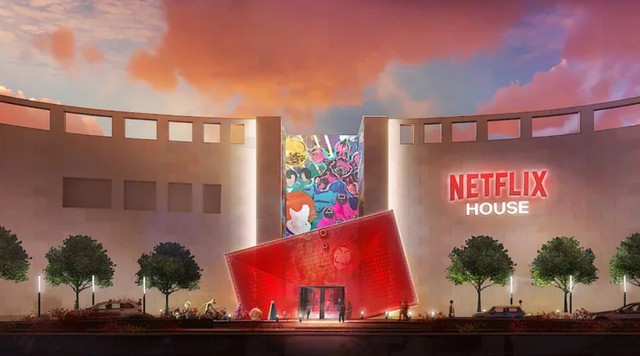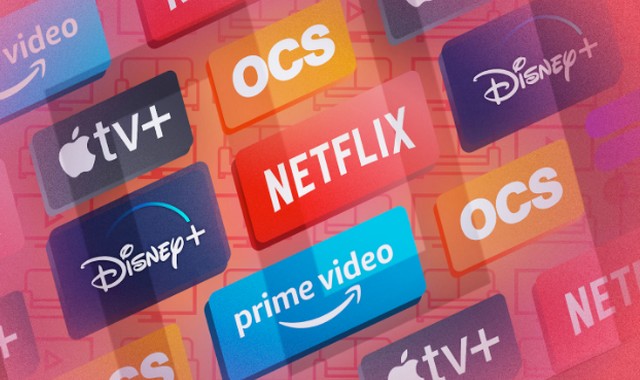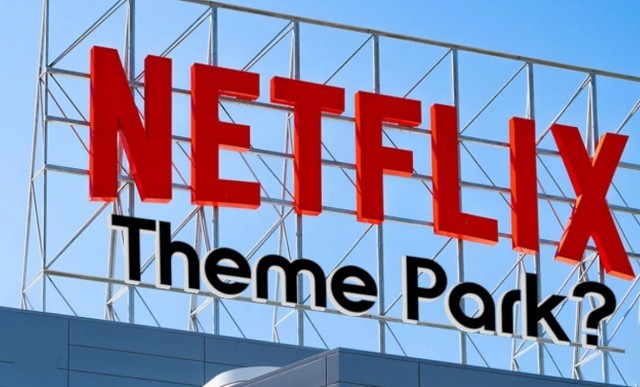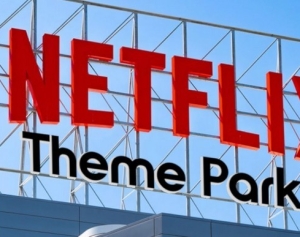Why Netflix is getting into theme parks
September 24th, 2025 Rédaction No Comment News disney, Etats Unis, Netflix 6227 views
Netflix Homes is the brand that will soon launch first in the United States. Netflix is entering the US theme park market not just as a whim, but as part of a sophisticated business strategy aimed at diversifying its revenues and solidifying its status as a global entertainment giant.
The new entertainment offering recreates the nightmares of Stranger Things, Squid Game, and other titles broadcast on the streaming network.
 The Netflix park, the press release specifies, will not be as large as Disney’s: it will be less than 10,000 square meters and will offer mini-golf, virtual reality, shops, and restaurants open to the public.
The Netflix park, the press release specifies, will not be as large as Disney’s: it will be less than 10,000 square meters and will offer mini-golf, virtual reality, shops, and restaurants open to the public.
Admission will be free, but you will have to pay for each experience.
The first of these Netflix parks will open in Philadelphia on November 12th, but thanks to this simple concept, a long list will soon follow across the United States and probably beyond.
We already know that the second park will be in Dallas and the third in Las Vegas.
 Netflix stated that each of the spaces can be reconfigured to follow the themes of other series, presumably by following trends and the impact their productions have on the market.
Netflix stated that each of the spaces can be reconfigured to follow the themes of other series, presumably by following trends and the impact their productions have on the market.
Monetizing its brands beyond the screen
The streaming market is saturated, and subscriber growth is slowing. To ensure long-term profitability, Netflix must find new sources of revenue.
Theme parks, as Disney has successfully demonstrated, are a cash machine. They generate massive revenue through ticket sales, food, beverages, and merchandise.
It’s the most direct way to transform fans’ love of a series into tangible financial value, regardless of the subscription model.
 Creating an immersive experience for fans
Creating an immersive experience for fans
Netflix has a catalog of extremely popular intellectual properties (IPs): Stranger Things, Bridgerton, Squid Game, etc.
Theme parks are the perfect tool to bring these worlds to life and deepen fan engagement.
By offering themed attractions, shops, and restaurants, Netflix transforms the viewer’s relationship with its content, moving it from a passive viewing experience to an active and memorable one.
This strengthens subscriber loyalty and makes the Netflix catalog even more valuable.
 A competitive advantage over Disney
A competitive advantage over Disney
Netflix’s main rival in entertainment isn’t just Amazon Prime Video or Apple TV+, but Disney as well.
Disney’s business model relies on the synergy between content creation (films and series) and the exploitation of this intellectual property in theme parks, stores, and cruises.
By entering the same field, Netflix is directly challenging Disney on its most lucrative playing field, seeking to capture a share of the « live » entertainment market.
This expansion is therefore a way of positioning itself as an omnipotent actor, capable of being present both in the living room of spectators and in their leisure time.
On the same subject
Should unauthorized temples be destroyed ?
Malaysian Prime Minister Anwar Ibrahim sparked a heated national debate by announcing that his...
Why the Chinese bank keeps buying more gold
The People’s Bank of China (PBOC) confirms its strategy of increasing its gold reserves...
What date is Ramadan 2026 ?
For Ramadan 2026 (1447 AH), the predicted dates are now quite precise, although they...










